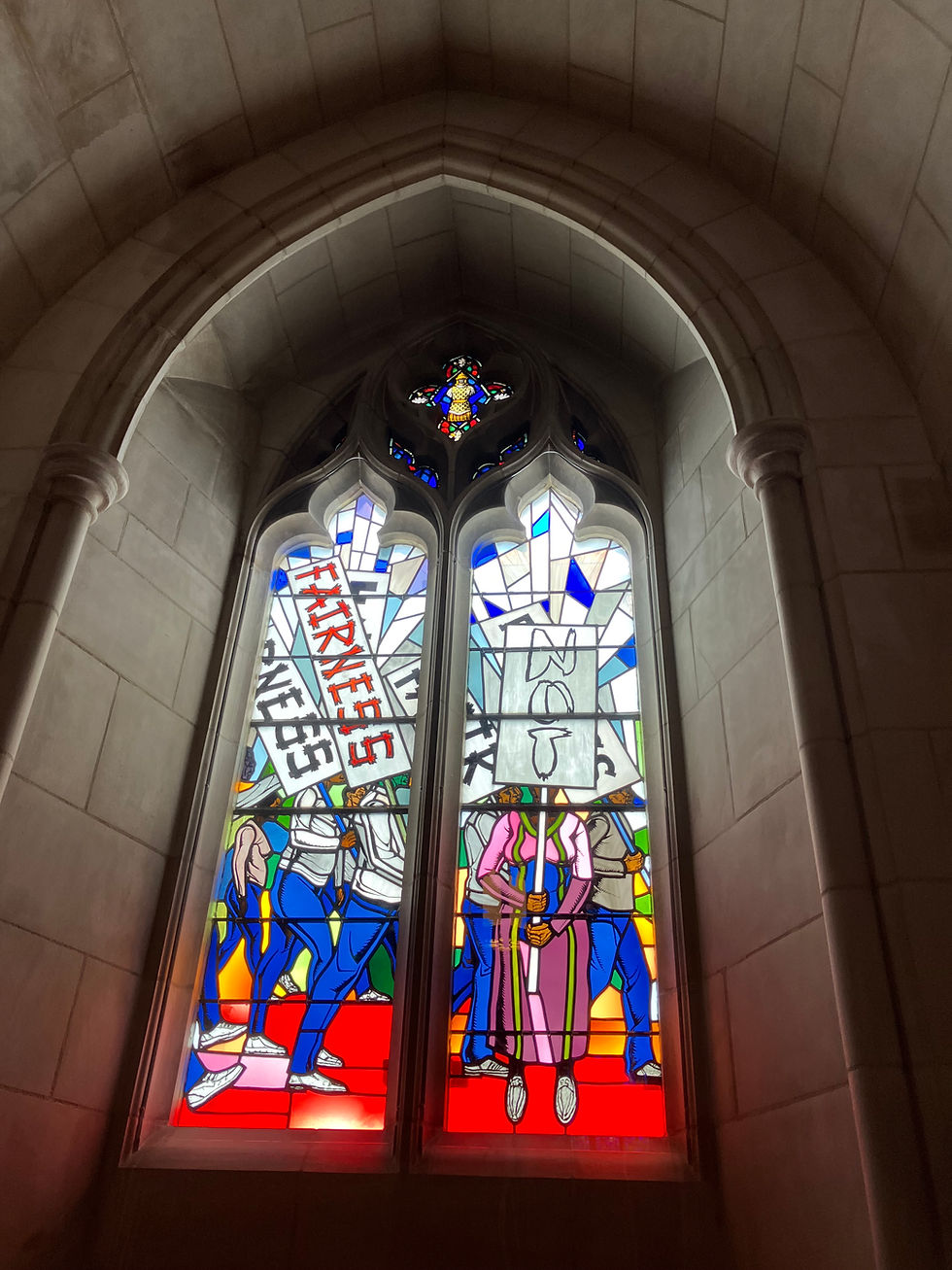COVID Spiritual Fatigue: Ugh... Where are You Hiding God?
- Susan Cartmell
- Mar 7, 2022
- 3 min read
Updated: Dec 3, 2022
Lent is never easy but this is one of the Lentier Lents we’ve had and we’ve had some bad ones recently. Two years ago, at the start of Lent COVID shut down businesses, schools, churches. Suddenly, all semblance of civic life was on hold and we’re still reckoning with the trauma of that seismic shift.
Then, this spring just as we started look forward with tentative hope, Vladimir Putin invaded Ukraine. Now the invasion isn’t going as they expected and Russian troops are getting bogged down in what was supposed to be a quick submission of their next doorneighbors. Stalled and frustrated by Ukrainian resolve Russian fighters bomb apartment buildings and begin a scorched earth approach to this war.
With horror and frustration, we watch. We shudder with collective horror at the calculated cynicism of a leader who would choose to launch such an invasion, in part, now, because the world is distracted by an international health crisis. How do we find faith in the face of such cold, sadistic opportunism? How do we nurture our spirits in times like this? Where’s God in this moment?
The Bible tells us that some of God’s best work happens in just such times as these. God can be seen in the stiff resolve of the Ukrainians – soldiers and civilians alike – who have resolved to fight for their homeland. God’s in the gutsy backbone of the television reporters who walked off the set in Russia rather than repeat their government’s lies. God’s in the generous impulses of people around the world who have raised combined contributions of well over $50 million dollars for Ukrainian relief so far.
God’s in the impulse of parents in Poland who are leaving strollers at the train station for refugee families they’ll never know, who might need them. God’s in the organizing effort at a train station in Berlin where exhausted Ukrainian refugees arrive to a sea of yellow vests with people offering cups of tea. God’s in the German welcome center where refugees find piles of clothing and shoes neatly stacked by gender and age along with offers of free rooms and beds, or train tickets for those trying to reach family in other parts of Europe. God’s in the encounter between a fifteen-year-old alone with his seven-year-old sister who was greeted by a German grandmother he’ll never forget who pressed a 100 Euro bill into his hands. As one million refugees have fled Russian rockets in the largest humanitarian crisis in Europe since World War II God’s in the response of thousands of strangers striving to love their neighbors as themselves.
Often, we imagine Lent should an inward journey of faith. We imagine Lent is observed by sacrificing chocolate. But Lent could also be a time to live our faith out loud in new ways. Lent may not be drawing us to further introspection but pushing us out to stand up with those who are being bullied or speak up for those who have no voice. Maybe God does not need us to confess our sins in Lent as much as God needs us to open our hearts and be more generous, more thoughtful, or just more decent. Whatever you decide to do to observe Lent, I hope you see the signs of hope in the world. I hope you plant some seeds of faith. I hope you remember that God is as close as ever in moments like this.




Great writing again, Susan! I love this idea of living Lent out loud!